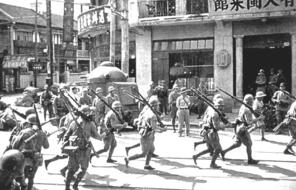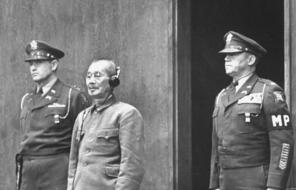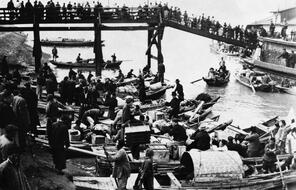Studying the Nanjing Massacre is immensely important for two reasons. One, because it tells us about an important historical event that has too long been misunderstood or ignored. And second, because it tells us a great deal about the contemporary politics of China and Japan.
First of all, it's worth studying the massacre because it shows what happens in a situation where an imperialist society, which has decided to turn against democracy, and which has militarized in a very inward-looking and brutal way, is allowed to exercise what it feels are its rights of conquest in a neighboring country. The atrocities that were committed against the Chinese people in Nanjing, and the deaths of so many people, were not the product of a cold, calculated plan. But rather, they were the victims of a violent outburst of a feeling of imperialist entitlement by a country that had created a narrative about its own role in Asia, which its Chinese neighbors resolutely did not share.
So understanding how ideology can lead to terrible, violent consequences in real life, I think is a very important part of understanding why Nanjing is important. But also important is understanding how this event has been treated in the East Asia of today, because one would like to say that the memory of these horrific events has brought China and Japan closer together. But the fact is that it hasn't, or it hasn't yet.
In China, the events are still very much tied into a state-driven narrative in which it appears that China's horrific victimhood during that time can be used to serve geopolitical aims in the Pacific today. At the same time, in Japan, there is far too wide a sense that there are politicians and people in the public sphere who want to minimize the effects of that massacre, in terms of understanding Japan's wartime role.
Now, we should be clear, there are very many people in Japan who have done a great deal to publicize the horrors of the massacre. And we should be very grateful to the efforts of many Japanese scholars and politicians who have apologized for the massacre, and have also acknowledged that Japan has to come to terms with it.
At the same time, there is too much of the public sphere in Japan which does not spend time understanding why those events happened. And the fact is that outside a sphere of those who really read history, who understand the complexity of the relationship between the two societies, we are in danger of being in a world where there are two very different interpretations of that massacre on either side of the East China Sea.
It's clearly important to understand the reality of what happened at the time and why it matters, so that we can bring together a shared understanding that's important not just for China and Japan, but for the wider world, including the West, that has to deal with those two immensely important nations.












